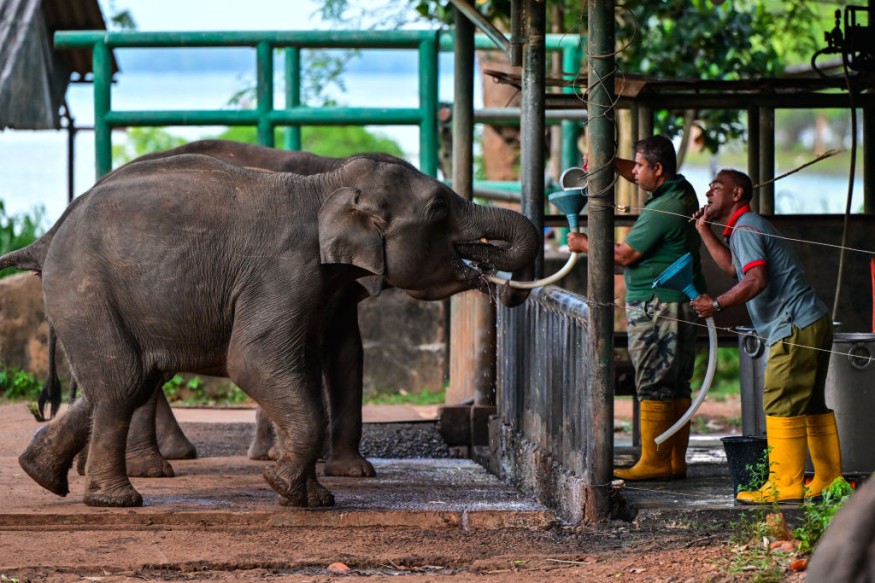Authorities in Zambia warned tourists after an American woman died of an elephant attack while on a wildlife tour.

Fatal Attack
The second fatal attack in Zambia this year occurred on Wednesday, when an African elephant attacked and killed a 64-year-old tourist.
One of the elephants assaulted a parked tourist vehicle in Livingstone while it was viewing a herd near the Maramba Cultural Bridge. According to local news, Juliana Gle Tourneau, a visitor from New Mexico, was tossed outside and trampled to death.
Officials reported that Tourneau was a member of a group that had stopped close to the bridge because of the traffic the elephant herd was causing there.
This is the second attack of this kind that has occurred this year; the first one killed an American tourist in March while on a game drive in Zambia's Kafue National Park. In that particular event, the tourist was murdered and five others were injured when an elephant assaulted a truck and overturned it.
Gail Mattson, a 79-year-old Minnesotan, died in the attack, according to her family. Rona Wells said in a Facebook post that her mother passed away in a "tragic accident while on her dream adventure."
There is terrifying smartphone footage of the incident. Tourists captured the opening scene of the video while on a wildlife drive in an open safari truck.
Authorities in Zambia have advised visitors to observe animals throughout the nation with the utmost caution.
In recent years, there have been fatal elephant attacks reported throughout the nation.
Pressure On Habitat And Herds
A wildlife expert believes that elephants' increased aggression toward humans is a result of mounting pressure on their habitats and herds. Over 200 people have died in Kenya as a result of elephant attacks, according to the World Wildlife Fund, in the previous seven years.
Joshua Plotnik, a researcher at Hunter College in New York City who studies elephant behavior and cognition, claimed that unfortunate encounters with elephants kill several hundred people in India every year.
"As human development expands and natural elephant habitat decreases, the frequency of interactions has inevitably increased. This leads to more elephant and human deaths, unfortunately,' he added.
The Oklahoma City Zoo's Chase LaDue, a conservation biologist, stated that an assault can be influenced by the location and timing of safari vehicles. And after going through a stressful event, elephants might become irritated and act out, much like people.
LaDue observed that during the March incident, the safari car was positioned in an unfavorable area with overgrown areas that made it challenging to provide the elephant with the necessary room.
Not every interaction has a tragic ending. In the Pilanesberg National Park of South Africa in March, a male elephant repeatedly lifted and lowered a truck meant for wildlife viewing with its trunk acting as a crane. Using loud noises like slamming the doors, shouting, and revving the engine, the guide drove the elephant away. Nobody was hurt.
Experts agree that there is risk involved with engaging with wildlife. They advise visitors to inquire about the type of training that the safari company's guides receive in order to guarantee a safer experience. They should, at the very least, have first aid and emergency medical care experience. He said that several nations also have accreditation schemes.
Avoid an elephant if you see one in a city or neighborhood. To lessen the strain on the enormous creatures, national parks, wildlife reserves, and protected places with wild elephants will restrict the daily number of tourists or automobiles.
Related Article : Elephant Tramples to Death College Student at Indian Village
© 2025 NatureWorldNews.com All rights reserved. Do not reproduce without permission.





